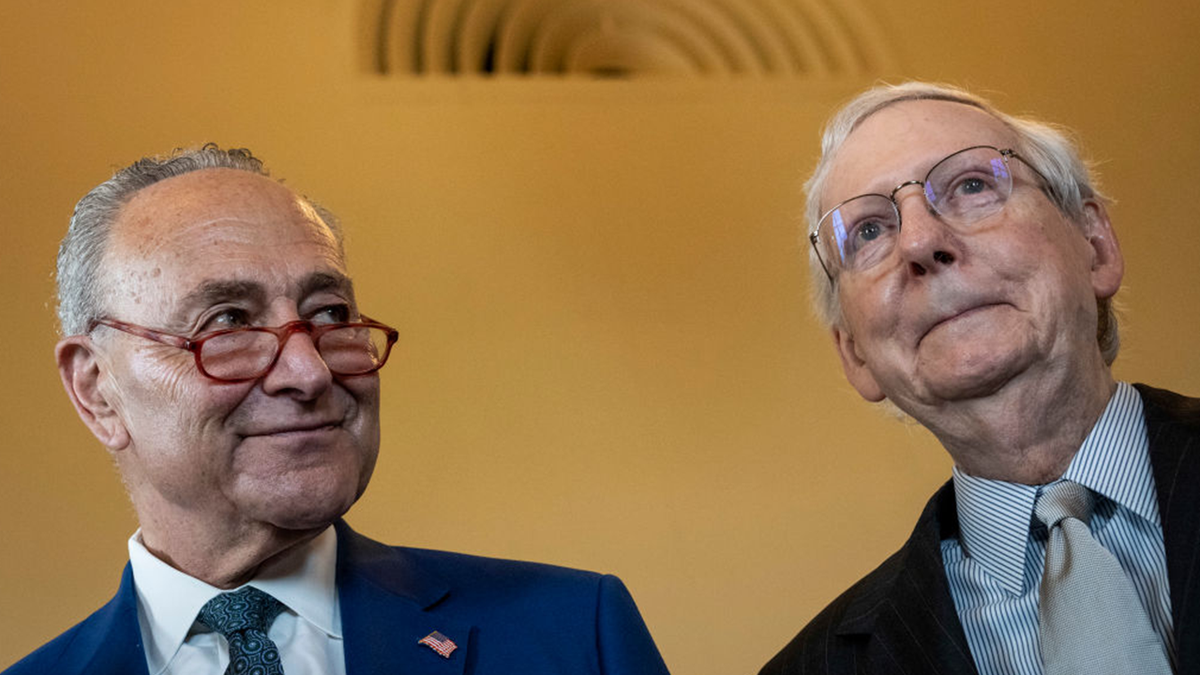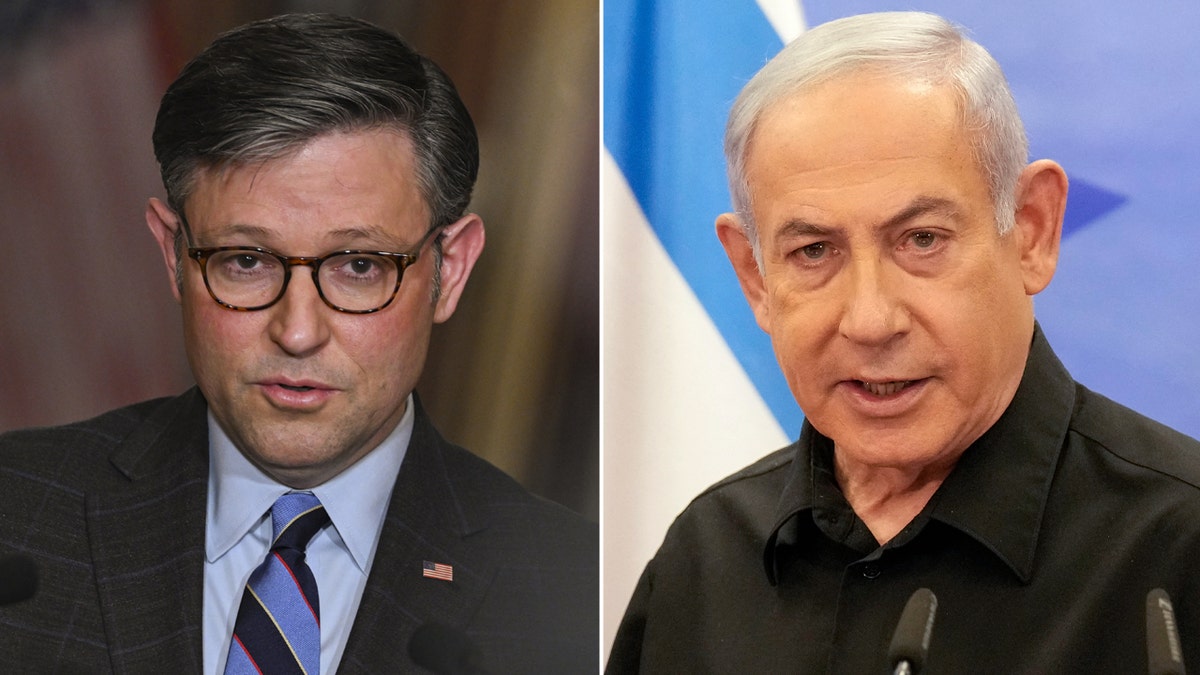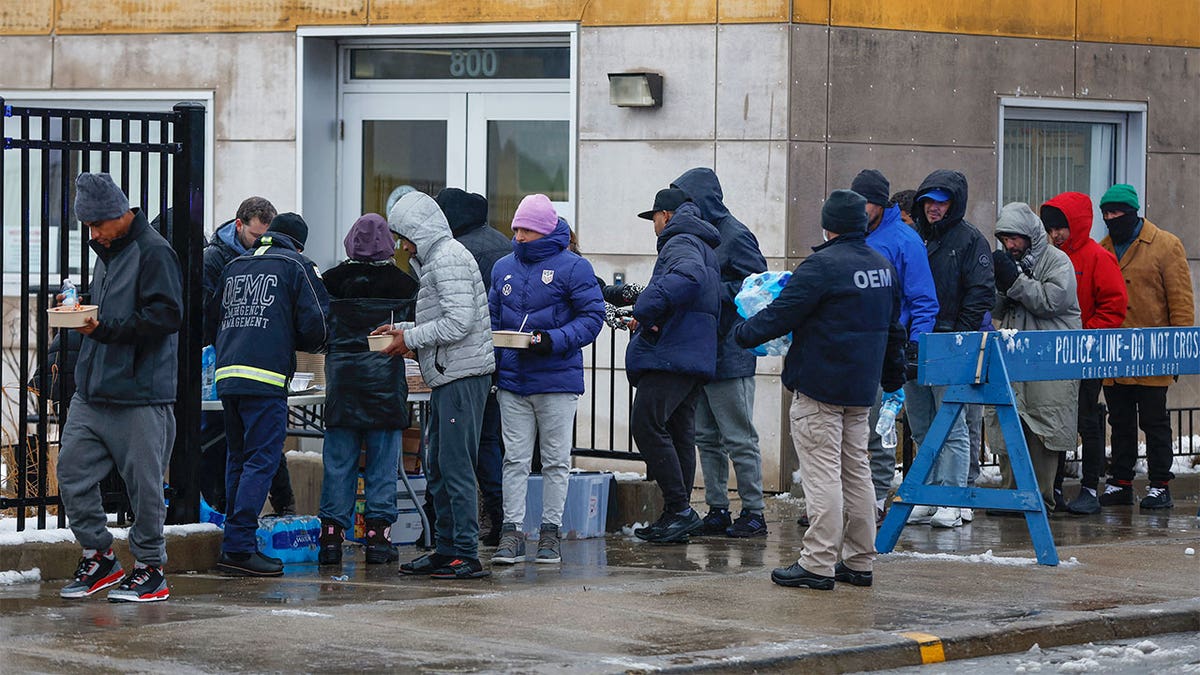Mike Lee: The Senate border bill is 'going to die'
Sen. Mike Lee, R-Utah, says Republicans read the proposed border bill, and it was 'discouraging' on 'The Ingraham Angle.'
Just days after the long-awaited text of the border bill was released, it is on track to die after its first procedural vote in the Senate on Wednesday afternoon. Howerver, Senate Majority Leader Chuck Schumer, D-N.Y., has another plan.
According to a Senate Democrat aide, Schumer told the caucus he is planning to put the supplemental package — which includes billions of dollars of aid to Ukraine, Israel, Taiwan and humanitarian assistance to Gaza — on the floor without the border security portion of the legislation after the expected failed cloture vote.
"Schumer told members of his caucus and the White House last week that if the Republicans scuttled the bipartisan border and supplemental agreement, he had prepared a plan to use the motion to reconsider to force Republicans to vote on the foreign aid without the border," the aide said.
The bill, negotiated by Sens. James Lankford, R-Okla., Krysten Sinema, I-Ariz., and Chris Muprhy, D-Conn., has drawn backlash from more than 20 GOP senators since its release, who argue it would not stem the historic levels of illegal migrant crossings. Several Democrats also oppose the bill, saying it would hurt migrants seeking asylum.

Senate Majority Leader Chuck Schumer, left, and Senate Minority Leader Mitch McConnell. (Getty Images)
Sen. Minority Leader Mitch McConnell, R-Ky., a strong supporter of aid to Ukraine, was initially optimistic about the bill's passage, but his outlook appeared grim by Tuesday afternoon as mounting opposition from his conference came to a head.
"I think, in the end, even though the product is approved by the border council that adores President Trump, most of our members feel that we're not going to be able to make a law here," said McConnell, a strong supporter of aid to Ukraine.
"And if we're not going to be able to make a law, they're reluctant to go forward. There are other parts of this supplemental that are extremely important as well — Ukraine, Israel, Taiwan. We still, in my view, tackle the rest of it because it's important," McConnell added.
"Not that the border isn't important, but we can't get an outcome. So, that's where I think we ought to head up to Sen. Schumer to decide how to repackage this if, in fact, we don't hold onto it."
Schumer told reporters at their weekly press conference on Tuesday the package "is so important for the security of America at the border for the security of Ukraine and Israel" when asked if the Senate would consider repackaging the foreign aid provisions and move forward on just those items without the border bill.
"We're going to keep at it," Schumer said. "This is not the last Republicans will hear from us. We're going to keep at it. We will have a vote tomorrow. We will move forward."

Speaker Mike Johnson, left, unveiled a standalone bill providing $17.6 billion in aid to Israel over the weekend. (Getty)
A standalone funding bill for Ukraine faces an uphill battle in the Senate. Republican Sen. Mike Lee of Utah wrote in letter posted to X on Wednesday that the Republican conference "agreed and has repeatedly stated that it would not vote to give another penny to Ukraine until our border is secure."
The immigration portion of the doomed Senate bill, appended to the $118 billion national security supplemental package, includes heightened asylum restrictions and gives President Biden the authority to suspend the bill on an emergency basis.
The emergency bill introduces a new three-year authority, akin to COVID-era Title 42, enabling officials to shut down entries into the U.S. at the southern border.
This provision occurs when there is a seven-day average of 5,000 daily encounters or 8,500 in a single day. DHS must then expel all migrants, except unaccompanied children, until encounters drop at least 25% for seven consecutive days, with a 14-day deadline for ending the authority.
However, the bill states that if the president "finds that it is in the national interest to temporarily suspend the border emergency authority, the President may direct the Secretary to suspend use of the border emergency authority on an emergency basis." Essentially, the "border emergency" triggered at 5,000 crossings per day within a week can be overturned by Biden.
SENATE RELEASES LONG-AWAITED BORDER LEGISLATION, MAJOR ASYLUM CHANGES

A group of migrants receives food outside the migrant landing zone during a winter storm on Jan. 12, 2024 in Chicago. (KAMIL KRZACZYNSKI/AFP via Getty Images)
Republicans quickly took aim at the number of encounters within hours of the bill's release, arguing that there should be zero crossings. Former President Trump, the lead GOP presidential contender, also urged senators not to pass the bill.
It would also require migrants to prove "reasonable possibility" of persecution if returned to their home country when seeking asylum, rather than "significant possibility." It also moves consideration of bars to asylum, including a criminal conviction, into the initial screening stage rather than later in the process.
Lankford, the lead Republican negotiator, also indicated this week he is considering voting against the package even though he supports it, which House Republicans have already vowed to tank.
Fox News' Adam Shaw contributed to this report.






















